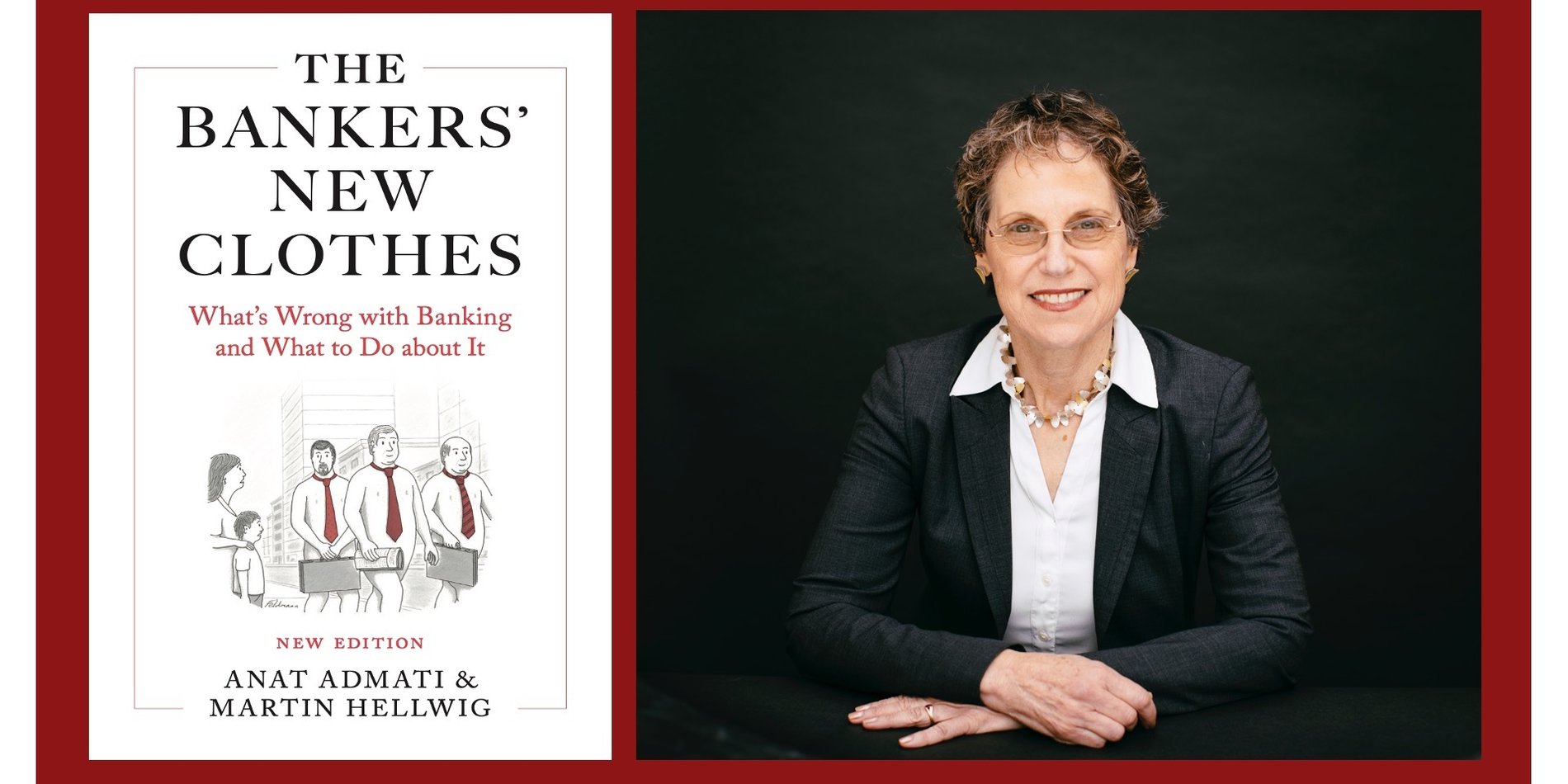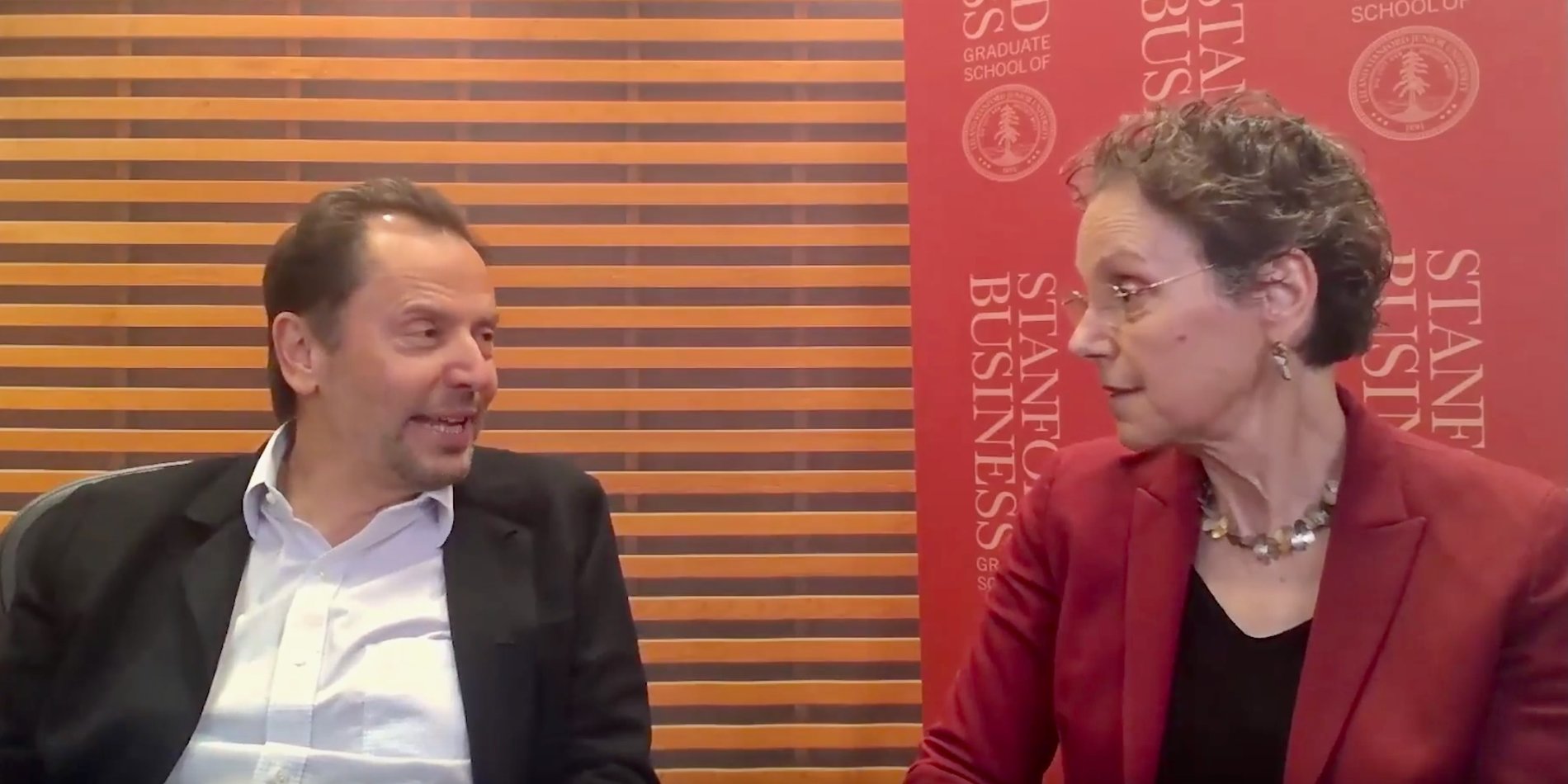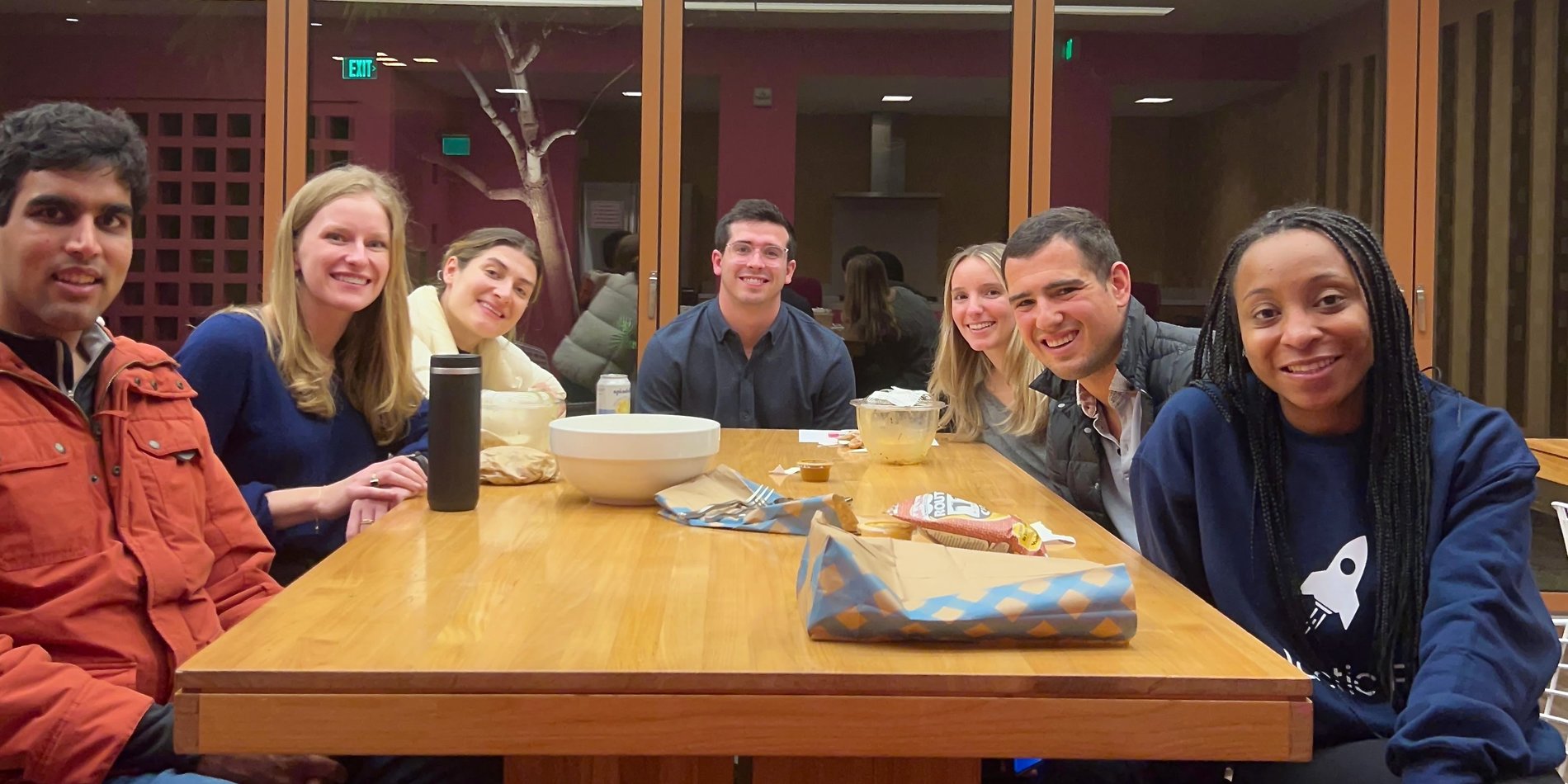Widening Our Apertures (for Everyone’s Good)
This article was originally published in [non-disclosure], Stanford GSB's online magazine.
At a 2019 Stanford Faculty Senate meeting, Dean Levin was asked about the “success of the GSB’s efforts [to] motivate students to work toward ‘social good.’ ”

His response? The GSB “opens students’ apertures on what is possible in their careers and lives.”
As a GSB student, I have loved opening my aperture to new professional and personal opportunities. Whether exploring climate careers, strengthening my understanding of leadership in the classroom, or just enjoying small-group dinners with a diverse set of classmates, the GSB has been an enriching place of discovery and reflection.
But, now in my MBA2 year, I’m wondering how we can open our apertures wider and work explicitly toward a better future for all?
While I was drawn to the GSB for its mission to “change the world,” I struggled in my first year navigating a GSB experience that seemed to reinforce the status quo more than equip us to create meaningful change:
- Defining our leading values — or not? — in Ethics: Our Ethics professors grounded us in traditional moral philosophies. But instead of testing our ability to memorize philosophers, what if we were constructively challenged to articulate and defend our personal values throughout the quarter to help us determine whether our stated principles align with our desired outcomes. If not pushed regularly to examine and justify my values in the classroom, will I be ready to stick to them when facing leadership pressures in the real world?
- Intervening in politics for corporate — or personal — gain?: In the political economy course “Strategy Beyond Markets,” we practiced coalition building as VCs and hedge funds lobbying the government to protect our private wealth. But what if we had gone further to debate the broader social and economic implications of business leaders intervening in the political process. Should I (as a future business leader) solely consider private profit maximization when engaging in politics, or should I consider the consequences for social well-being?
- Compensating CEOs — but not our employees?: Our “Compensating Talent” course focused heavily on executive incentive structures. But what if we focused equally on how to design equitable employee compensation strategies. How can I create fair, distributive reward systems, rather than just contribute to the deepening chasm between CEO and employee wages?
Some GSB initiatives challenge the status quo of profits at all costs, such as the Corporations and Society Initiative, Center for Social Innovation, and some elective courses (e.g., a new elective on systemic racial inequities). But only some students choose to engage with these outlets. This isolates conversations about how to drive positive change to the realms of policymaking and social impact instead of equipping all of us to engage on these matters.
I’ve become concerned that the disconnect between the GSB mission and classroom experience results in a missed opportunity to foster creative and critical conversations on the meaningful changes we need to build a better future. Especially the changes we need to spearhead within the private sector.
Let’s change this.
In a time of severe wealth inequality, climate change, and social injustices, we — as students and future business leaders — need to and can play a part in giving capitalism a more sustainable and equitable new beginning.
What could that look like? A few inspiring examples I’ve recently learned about outside of the classroom include:
- Innovating business models that shift from a model of profit maximization to a system based on enduring economic and social value creation. It’s not only about what product/service we build, but also about the way we deliver those products/services to the world, potentially through a Public Benefit Corporation (legally embedding a mission alongside financial duties) or through mission-oriented governance models like Patagonia developed. Every industry can benefit from businesses that innovate to be more environmentally sustainable and economically equitable.
- Creating distributive incentive structures, such as giving employees shares in the company to benefit alongside the C-Suite, as KKR did with a garage door business that achieved a remarkable 10x return. Or improving employee compensation and benefits programs to protect and improve financial and social well-being, as the Paypal CEO did, which led to a 16 percent increase in employee disposable income and supported continued revenue and EBITDA growth since the program was implemented in 2019.
- Using any position we’re in to create positive change, not waiting until we’re executives. While in consulting, I saw how a white male senior manager championed DEI and women’s issues, bringing these topics into our recruiting, mentorship and performance review processes to build more equitable structures and supportive office cultures. While at an environmental nonprofit that partnered with the private sector on sustainability priorities, I saw how two investment managers took the initiative to advocate for climate action, using their position at a top asset management firm to influence the Texas debate on emission regulation.
In whatever company or community we are in, we can create change that serves society and works toward a more sustainable and equitable future. Whether driving macro or micro improvements, every level matters.
While on campus, in the questions we ask faculty, guest speakers and ourselves, the conversations we have with each other, and the feedback we give to the school, let’s push for more discussion and analysis of the changes we need for a better future. Ask professors for cases that highlight business model innovations that integrate equity, sustainability or social responsibility into their core. Ask the next CEO guest speaker how they embed sustainability into their decision-making structures or what changes they believe need to happen to align corporate incentives with social well-being.
And for us, we are a wonderfully talented and thoughtful group that I know will continue having an impact on the world in whatever path we each choose. Let’s ask ourselves — what are we going to be proud of having contributed to on the road to a more sustainable, equitable future?



